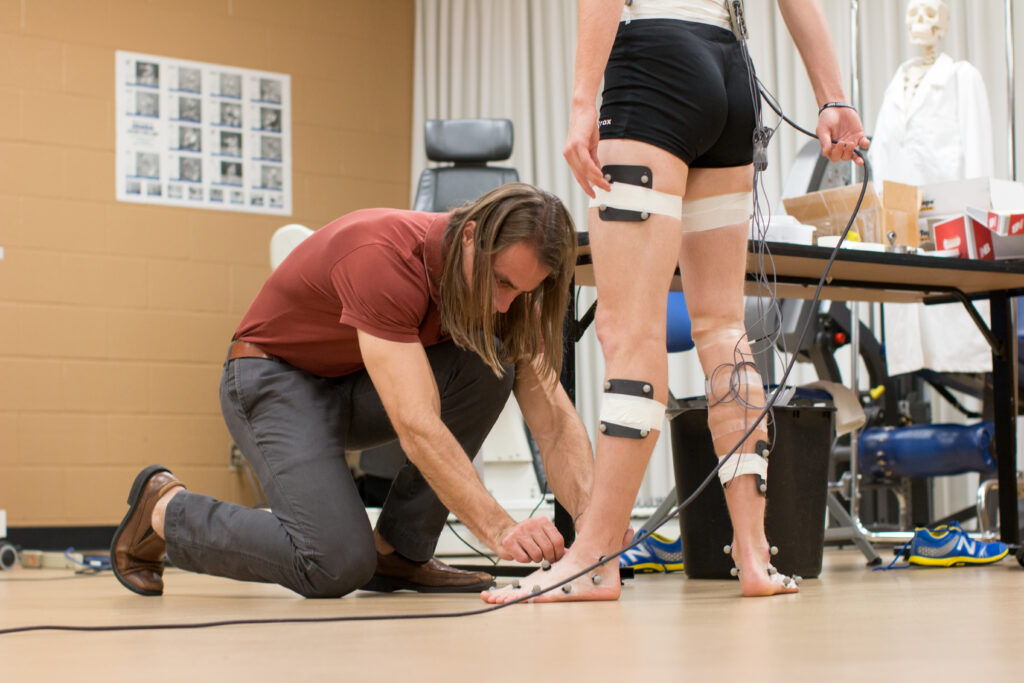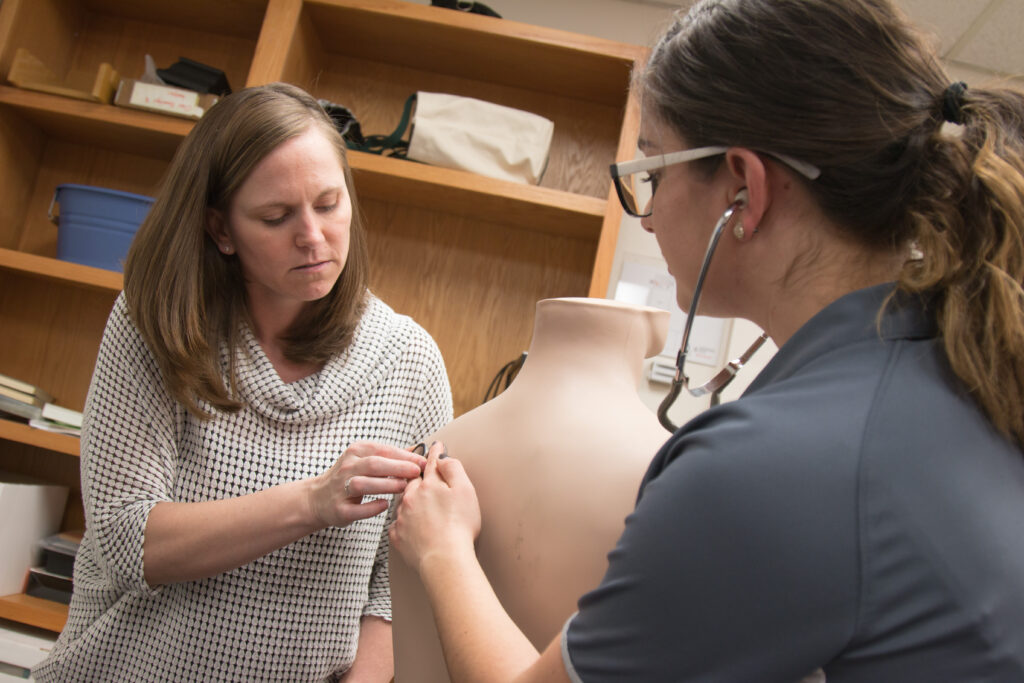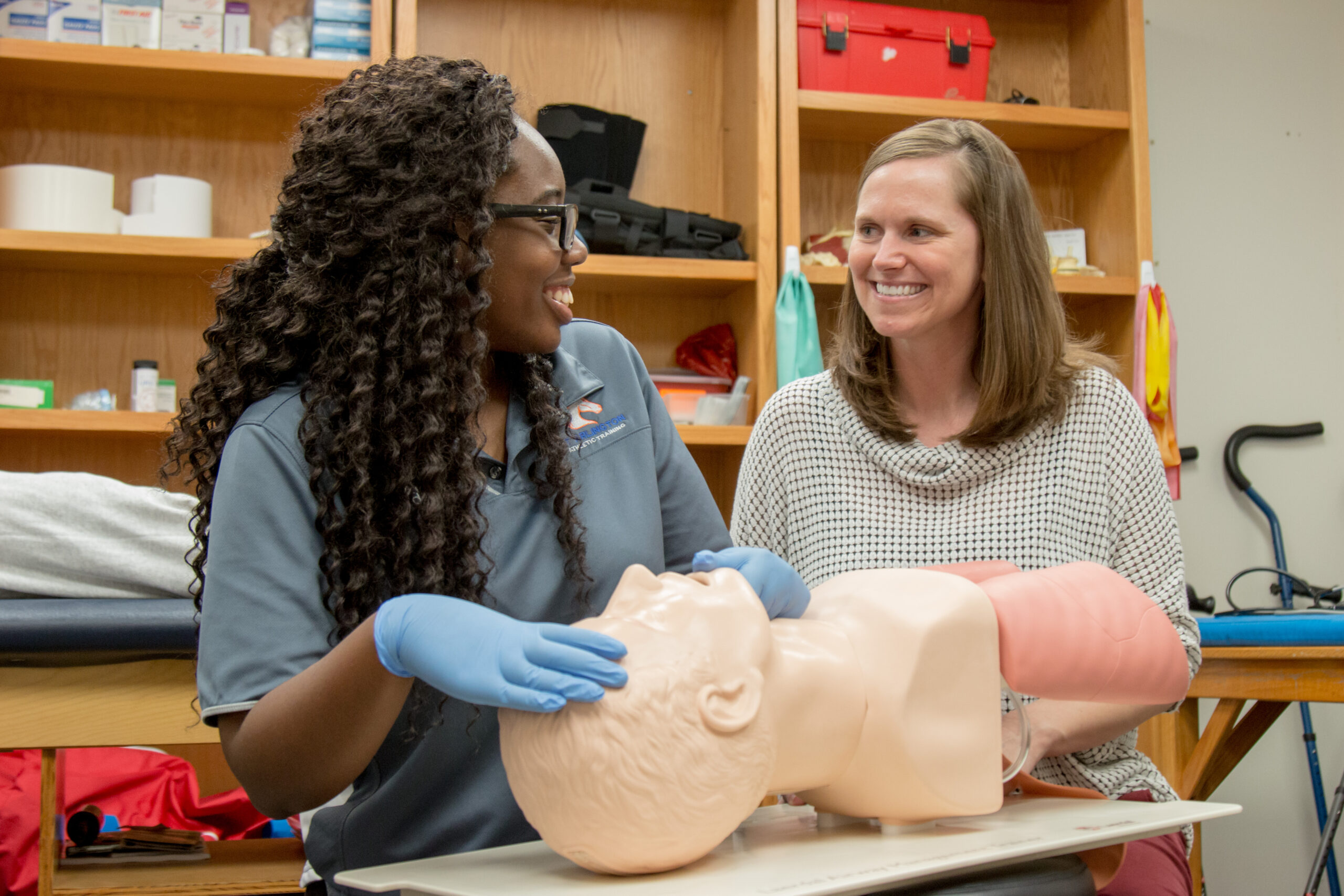At University of Texas at Arlington’s College of Nursing and Health Innovation, faculty, staff and students are striving to achieve better health and improve the human condition. Despite being a three-time designated National League for Nursing Center of Excellence, just one out of many awards and rankings, the college continues to grow its offerings. It has added new programmes to cater to a more diverse range of students seeking to make a difference in healthcare.
The Department of Kinesiology’s PhD in Kinesiology, ranked #25 in the US, is one of them. It prepares students to generate new knowledge and apply existing scholarship to questions concerning the prevention, assessment, and treatment of motor difficulties, chronic diseases, and musculoskeletal injuries. The curriculum takes basic and clinical science approaches to identify disease markers and mechanisms. Evidence-based interventions designed to prevent and treat specific health conditions such as chronic illnesses and injuries in vulnerable and at-risk populations comprised of obese, older, and/or minority person are included too.
John Kolade, from Lagos, Nigeria, chose the doctoral degree to become an expert in neural and hormonal mechanisms on reduced peripheral and cerebral vascular function. He focuses on selected populations with elevated risk for and prevalence of various disease conditions. The programme is a great way for Kolade to pursue his passion and hone excellent research skills — all while building the foundations of an academic career. “I anticipate using my acquired skills, knowledge, and expertise to improve the greater scientific community through research,” Kolade says.

Source: The University of Texas at Arlington – Department of Kinesiology
In all of the college’s graduate programmes, students build skills that enhance their practice, advance their career and empower them to make a difference in their community, state, nation or world. Student Prarthi Jignesh Shah is set to achieve all of this through her STEM-designated Master of Science in Exercise Science. “Mastering research, communication, and critical thinking are the top skills gained, which I’ll leverage to excel in evidence-based practice and contribute effectively to my professional journey,” says Shah.
This programme is ideal for those looking to work in physical and health education. You will develop academic and research skills needed for doctoral study in integrative and applied physiology, movement and rehabilitation sciences, or physical education. You will have the tools to thrive in clinically oriented environments, namely those relating to physical activity and rehabilitation like cardiac rehabilitation, strength and conditioning, or sports medicine.
World-renowned faculty, at the forefront of research and discovery, lead this MS programme. Shah is especially grateful for the guidance from Dr. Robert Matthew Brothers. “His extensive research in cardiovascular and cerebrovascular disease risk across diverse populations showcased not only his expertise but also his commitment to advancing scientific knowledge,” she says. “The incredible opportunity he granted me to collaborate on research projects not only significantly contributed to my academic growth but also boosted my confidence, providing invaluable insights into the intricate world of research.”
Chuan-Hao (Harry) Wu, a Master of Science in Athletic Training student, appreciates the engagement and personal experiences his professors bring. He believes such invaluable insight equips him to better handle patients — as do the programme’s experiential opportunities, such as internships. “Our programme offers not only didactic classes but also hands-on lab experiences,” Wu says. “We often blend these elements to create engaging and interactive learning sessions. Furthermore, each semester, we have internships, and our clinical coordinator strives to accommodate your preferences when assigning you to a location for post-graduation employment to the best of her abilities.”
The Athletic Training programme features in-depth classroom and laboratory instruction focused on injury prevention, assessment and diagnosis, acute care, and therapeutic interventions. This two-year cohort-based professional (entry-level) degree will prepare you for the Board of Certification Inc. (BOC) examination and licensure in any state. Addressing 10 areas, the programme’s didactic, laboratory, and clinical components are structured around the Commission on Accreditation of Athletic Training Education (CAATE) 2020 Professional Standards.
It takes six semesters (including two 11-week summer sessions) to complete this programme. It has an approximately 95% (three-year aggregate) “first-time pass rate” on the National Board of Certification Athletic Trainer Exam. For this MSAT, you will complete two years of clinical education experiences guided by a programme-approved preceptor.

Source: The University of Texas at Arlington – Department of Kinesiology
However, if you’re looking for a master’s with a curriculum designed around the skills most-used in real-world public health practice, then you should opt for the Master of Public Health (MPH) instead.
As the public health degree for the working professional, the MPH has a schedule that suits your busy working lifestyle. Nearly all courses take place in the evening and many courses are offered in a hybrid format — the online options mean fewer on-campus sessions. You will get a real-life and hands-on education through instructors who are practising public health leaders and community-based projects, adding a practical component to your learning. UT Arlington has one of the few MPH concentrations in Urban Health in the US and the only one in Texas. With funded research trajectories that directly impact urban communities taking place in the college’s interdisciplinary environment, the school gives you broad and in-depth insights into the field.
Learn more about the University of Texas at Arlington’s Department of Kinesiology.
Follow the University of Texas at Arlington on Facebook, X, LinkedIn, Instagram and YouTube.










